Lavrov: Russia’s patience with West ‘running out’, to 'make a decision'
Foreign Minister Sergei Lavrov says Russia's patience with the West has come to an end, warning that Moscow will not wait forever for the US and NATO to respond to its security demands.
"Our patience has come to an end. We are very patient; you know that we have been exercising restraint for a long time. We showed restraint for a very long time, now it's time for us to go. We are waiting for the driver on that wagon to answer us specifically on our proposals," Lavrov said at a press conference in Moscow on Friday.
Russia, he said, will not endlessly wait for changes and promises from the West. Moscow wants a detailed written response to its security demands as to which worked and which did not with an explanation, he added.
“We know and are able to ensure our security in any case,” the top Russian diplomat stressed.
"I assure you that we will not endlessly wait for some changes and promises. We expect answers from our colleagues, written answers, put on paper, as we did when submitting our proposals. But in the meantime, we will continue to work to ensure that we are ready in the event of any development of events.”
The West should "understand the need to do this quickly, specifically on paper, and realize that the Russian Federation will not wait indefinitely," he said.
The Russian foreign minister said President Vladimir Putin could take the final decision once Moscow had received a point-by-point response to its proposals and counter-proposals from the West.
“On the whole, we are convinced that if there is goodwill, if there is a readiness for compromises, then a mutually acceptable solution can always be found,” Lavrov added.
"If our proposals are rejected… we will assess the situation and report to the president. The Russian Federation will make a decision taking into account all factors, primarily in the interests of reliable security."
Western governments accuse Russia of planning an invasion of Ukraine amid a military buildup near the border. Moscow rejects the allegation and insists that its deployments are defensive in nature.
Recently, Moscow has been especially unsettled by the prospect of Ukraine being admitted to NATO and has warned of serious measures to counteract that scenario.
Last month, the Russian government put forth a number of security guarantees that it said it wanted from the West, in particular about Ukraine, and offered to take certain measures in exchange.
Russian Deputy Foreign Minister Sergei Ryabkov and his American counterpart, Wendy Sherman, held on Monday more than seven hours of negotiations.
In press briefings after the talks, the two diplomats spoke of substantial differences. Ryabkov said Russia and the US had “opposite views on what needs to be done,” and Sherman said the Russian proposals had been “simply non-starters to the United States.”
Ryabkov was quoted by TASS news agency as saying on Thursday that this week’s rounds of talks with the United States in Geneva and with NATO in Brussels had hit a “dead end,” and that there was no reason to hold a new round of negotiations over security guarantees demanded by Moscow.
Ahead of the first round of the talks on Monday, NATO Secretary-General Jens Stoltenberg warned Russia of “severe costs” if it launched an attack on Ukraine.
Poland: Europe at greatest risk of war in 30 years
Poland's foreign minister on Thursday raised the alarm about the risk of Europe plunging into war as tensions escalate between Russia and the West amid lack of progress in their talks to resolve issues through diplomacy.
Zbigniew Rau made the warning as he was addressing envoys from the 57 members of the Organization for Security and Cooperation in Europe (OSCE), without naming the US and Russia or any other countries.
"It seems that the risk of war in the OSCE area is now greater than ever before in the last 30 years," Rau said in the speech outlining his country's priorities as it holds the OSCE's rotating chairmanship this year.
Poland has assumed the leadership position of the OSCE at a time that Europe is grappling with security concerns regarding NATO’s eastward expansion, worsening situation around Ukraine and the Black Sea region, refugee crisis and the coronavirus crisis.
EU extends Russia sanctions over Ukraine
The European Union on Thursday prolonged economic sanctions against Russia for six months over what it claims to be Moscow’s failure to live up to its commitments to a 2015 peace agreement in Ukraine.
The EU said it renewed the sanctions, which will remain in place until at least July 31, because Russia “did not fully implement” the Minsk peace deal reached in the Belarusian capital over the rejoining of Crimean Peninsula to Russia in 2015.
The restrictive measures targeted Russia’s financial, energy and defense sectors as well as goods that can be used for both civilian and military purposes.
The move halted all imports, exports or transfers of defense equipment, and limits Russia’s access to some “sensitive” technology used in oil production.
Relations between Ukraine and Russia have been deteriorating since 2014, when Crimea voted in a referendum to fall under Russian sovereignty. The US and the European Union backed Kiev, refusing to recognize the referendum results and later imposing sanctions on Moscow.
Ukraine as well as the EU and the US also claim that Russia has a hand in an ongoing conflict that has erupted in the Donbass region of Ukraine between government forces and ethnic Russians since 2014.
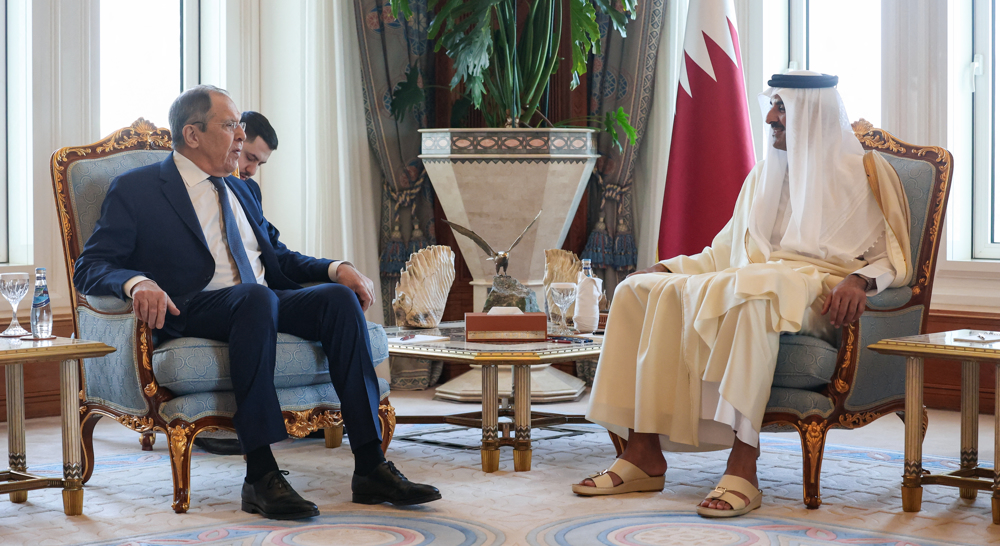
Russia, US diplomats to meet in Istanbul to discuss restoration of embassies: Lavrov
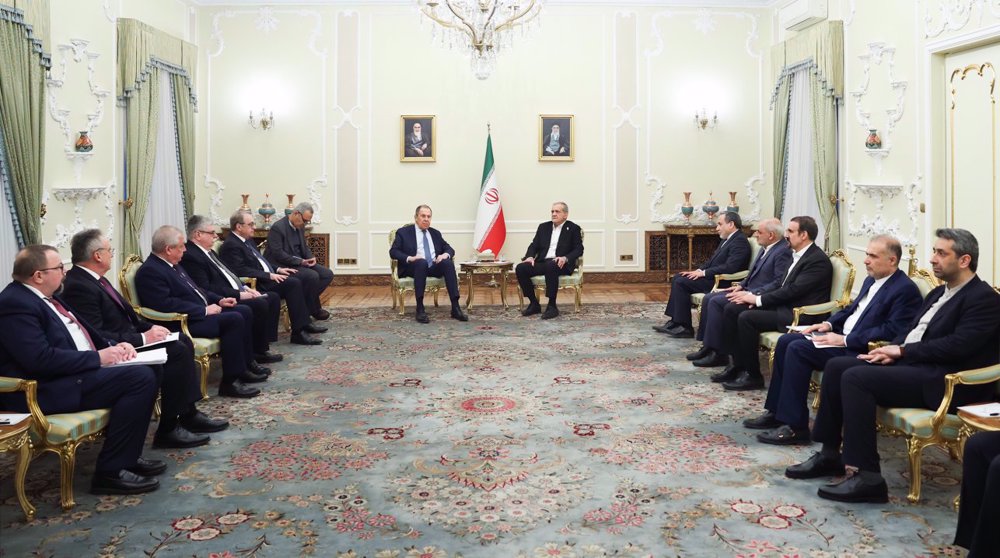
Iran’s president vows to accelerate cooperation with Russia
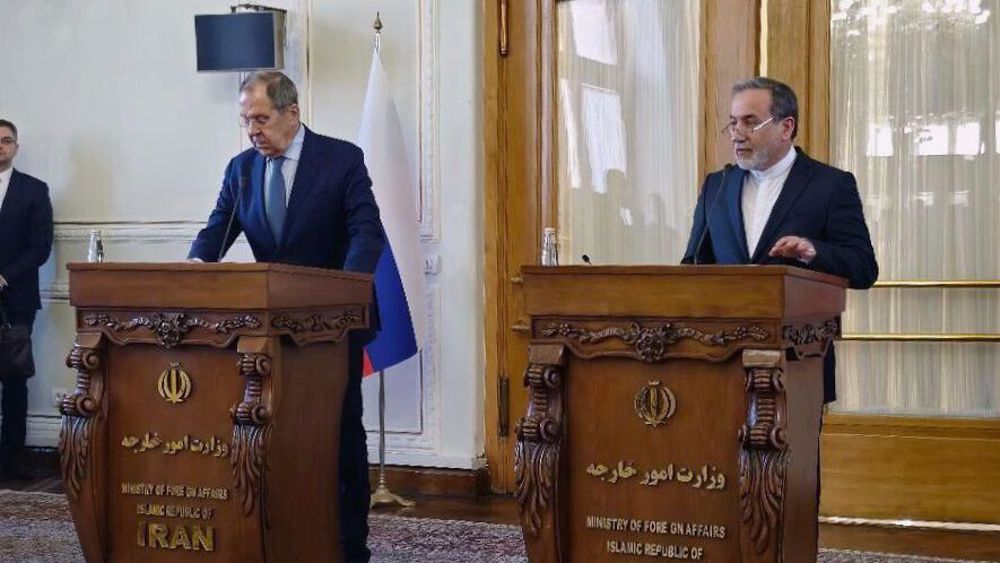
Iran rules out nuclear talks with US amid ‘maximum pressure’ campaign
Iran urges swift action to end Israel’s strikes on Syria
VIDEO | Israel destroyed 134 football fields in Gaza
Pezeshkian urges promotion of convergence among Muslim states
Trump says Ukraine can 'forget about NATO' ahead of meeting with Zelensky
Two Israeli spying devices found, neutralized in southern Lebanon
Israel has ‘no choice but to start negotiations’ on 2nd phase of ceasefire: Hamas
Iranian intelligence forces bust Takfiri terror network, seize weapon cache
VIDEO | Press TV's news headlines


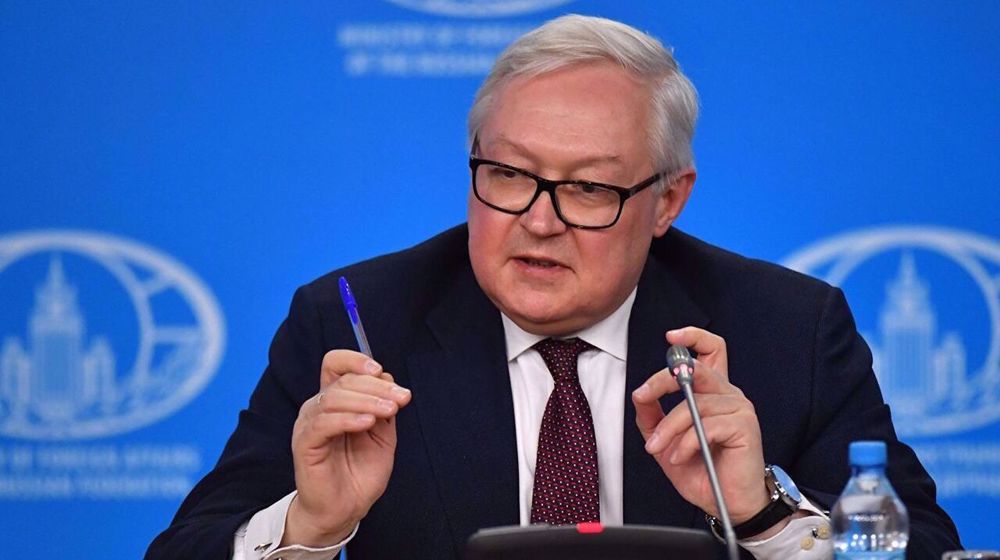
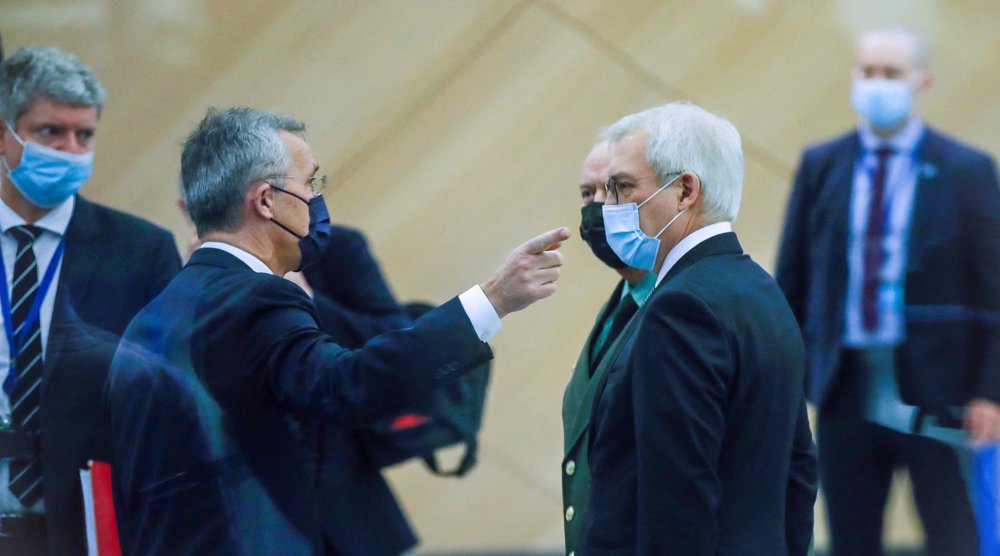




 This makes it easy to access the Press TV website
This makes it easy to access the Press TV website